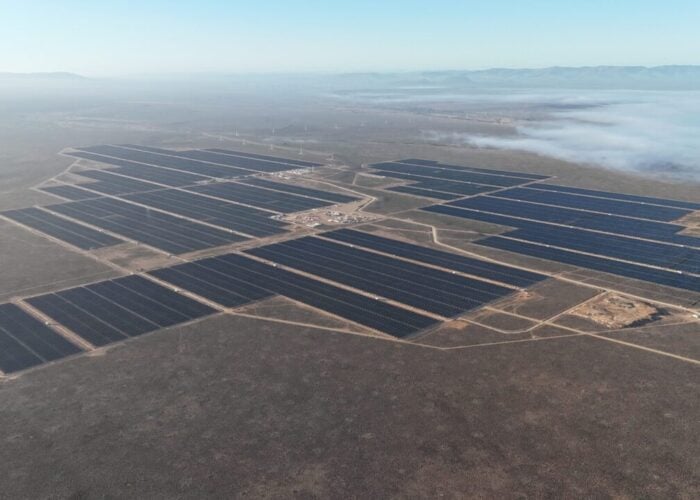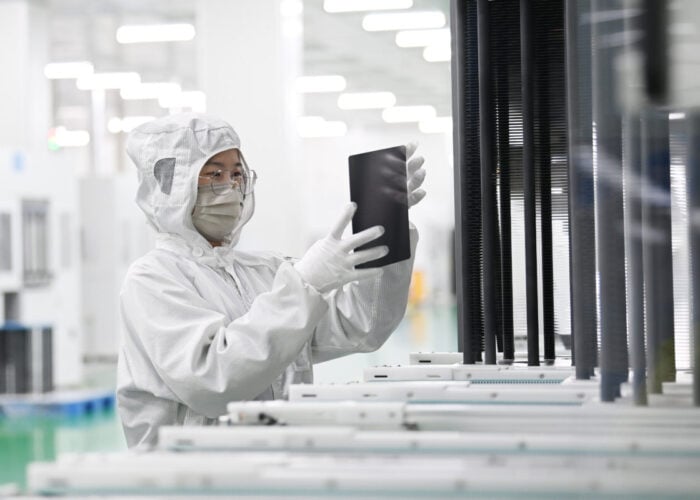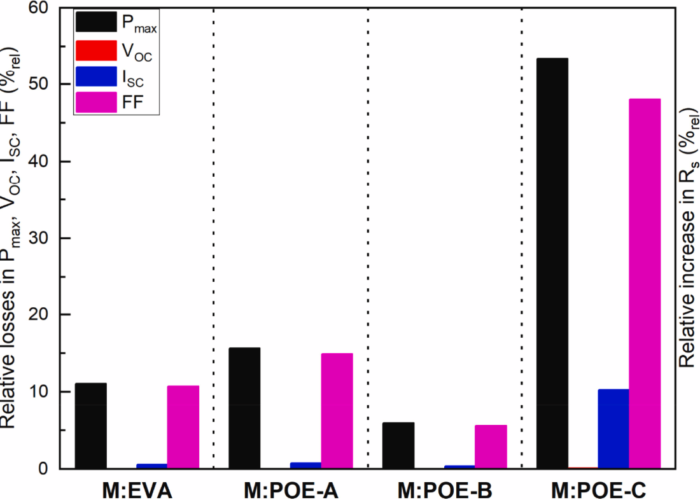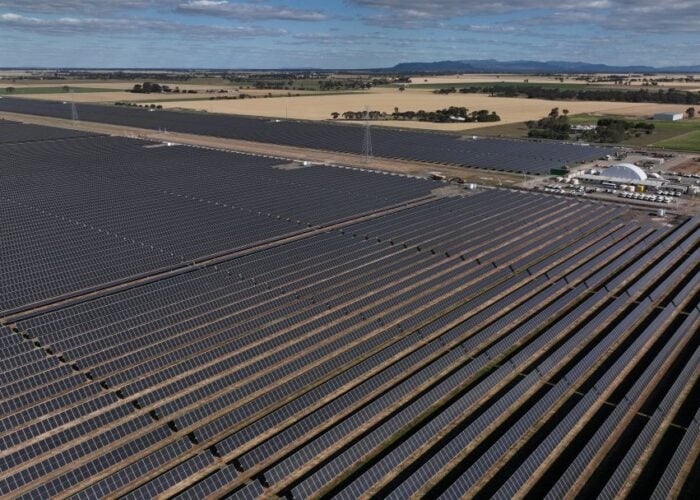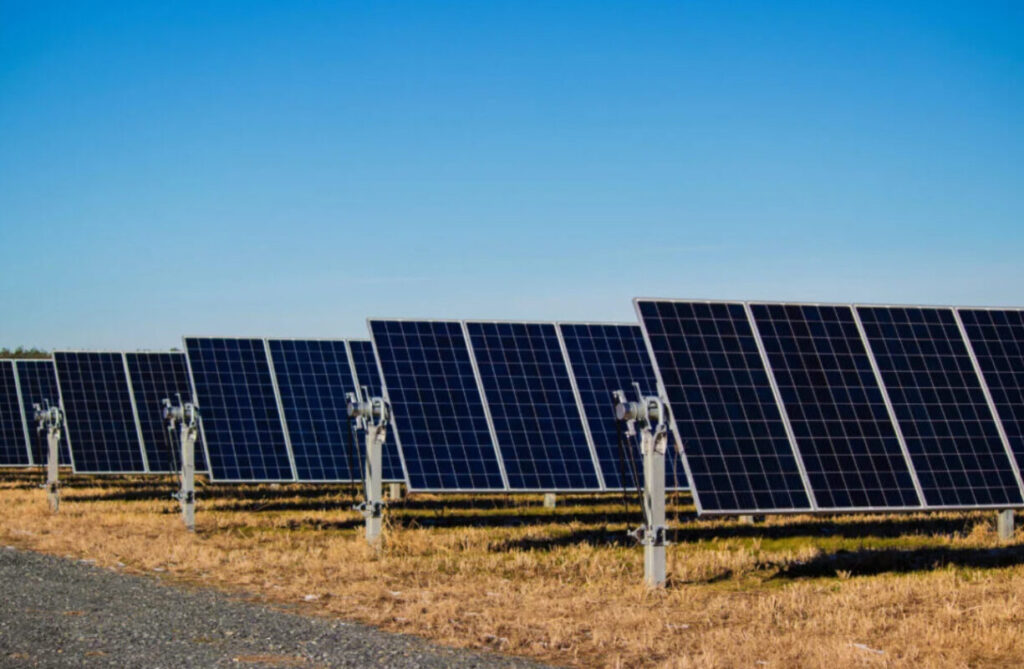
The Kiwa Group has published a new report into PV module testing, which includes recommendations for a number of pass/fail metrics for module testing processes.
The new report, ‘Raising the Bar: Defining acceptable levels of quality for PV modules’, was published by Kiwa PV Evolution Labs (PVEL) and Kiwa PI Berlin, and aims to help developers understand what it calls “acceptable levels of quality” for solar modules.
Try Premium for just $1
- Full premium access for the first month at only $1
- Converts to an annual rate after 30 days unless cancelled
- Cancel anytime during the trial period
Premium Benefits
- Expert industry analysis and interviews
- Digital access to PV Tech Power journal
- Exclusive event discounts
Or get the full Premium subscription right away
Or continue reading this article for free
The report notes that, historically, while the Kiwa Group and its subsidiaries have been heavily involved in testing solar modules, the company has been hesitant to impose strict pass/fail criteria for its testing process, considering the range of factors that can influence the suitability of a PV product that are not taken into account during testing, such as the region and climate into which the module is to be deployed.
However, the report’s authors note that module manufacturers and buyers have been “regularly asking Kiwa PVEL’s opinion on what results are acceptable,” and the testing group has now provided recommendations for the results of its tests. For instance, modules subjected to thermal cycling, damp heat, mechanical stress sequence and potential induced degradation testing, are recommended to be given a passing grade if they exhibit degradation rates of 3%, a failing grade if they exhibit degradation rates of 5% or higher, and a “conditional pass” if they show degradation rates between these metrics.
This metrics take into account the average results of tests collected by the Kiwa Group in its testing work. For instance, of modules subjected to the group’s thermal cycling tests, 95% posted degradation rates of 3% or less—and thus would receive a passing grade—while just 1% would receive a failing grade
The damp heat and mechanical stress sequence tests show similar historic percentages of passes, fails and conditional passes, but the potential induced degradation (PID) testing figures show some variance, with 11% of tests receiving conditional passing grades. This could be related to the fact that the rate of potential induced degradation varies significantly considering the type of materials used in a module’s construction, and the range of components in PV modules means it has been more difficult to draw stark pass/fail conclusions from historical testing data.
“This white paper highlights key aspects for module procurement and displays our commitment in pushing the industry to higher levels of quality,” said Terry Jester, managing director for North America at Kiwa PI Berlin. “We believe our updated guidance will be instrumental in advancing the solar industry and safeguarding renewable energy investments worldwide.”
More testing needed
However, the report’s authors acknowledge that a lack of data in some testing fields has made even these pass/fail metric suggestions challenging. A lack of “sufficient and conclusive data” in the field of UV-induced degradation, for instance means that the Kiwa Group is not offering formal guidance on such performance metrics.
This uncertainty is reflected in the group’s historic testing data for UV-induced degradation, which shows a much greater range of results than the other types of testing; 25% of modules tested showed a UV-induced degradation rate of less than 3%, while 35% would receive a conditional passing grade and 22% would receive a failing grade.
These tests also saw “other failures” occur 17% of the time, significantly higher than any of the other occurrence rates in other forms of testing, and highlighting that more testing is likely needed to draw meaningful conclusions about module performance in this regard.
The group is also unwilling to provide any sort of guidance on testing pertaining to PVsyst, a programme used to estimate the energy output of solar power plants, instead recommending that developers rely on “third-party testing from reputable labs”.
The news follows the integration of the PVEL and PI Berlin labs into a single brand earlier this year. At the time, Tristan Erion-Lorico, VP of sales and marketing at Kiwa PVEL told PV Tech Premium that “this is the natural progression” of testing, as manufacturers are looking to produce higher-quality products than ever before, and operators need to make informed decisions about module quality and performance.
Last year, US renewable power firm Clean Energy Associates (CEA) reported that there had been a “massive increase” in micro-cracks in PV modules between 2022 and mid-2023, raising questions about the quality of modules across the industry as the solar sector grows exponentially.


